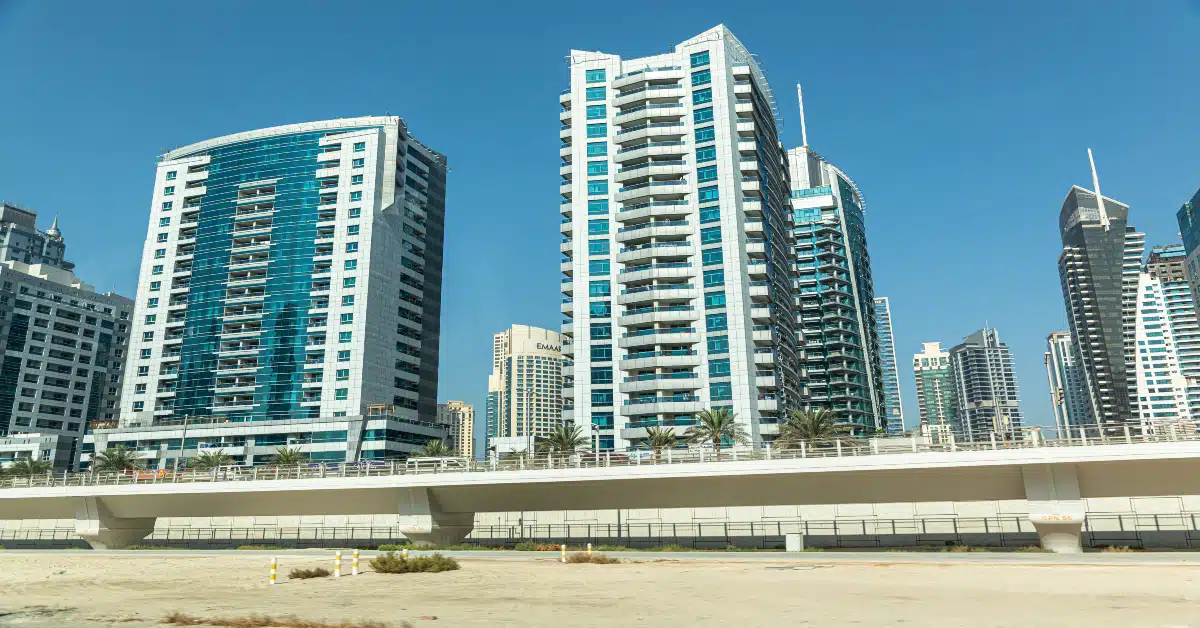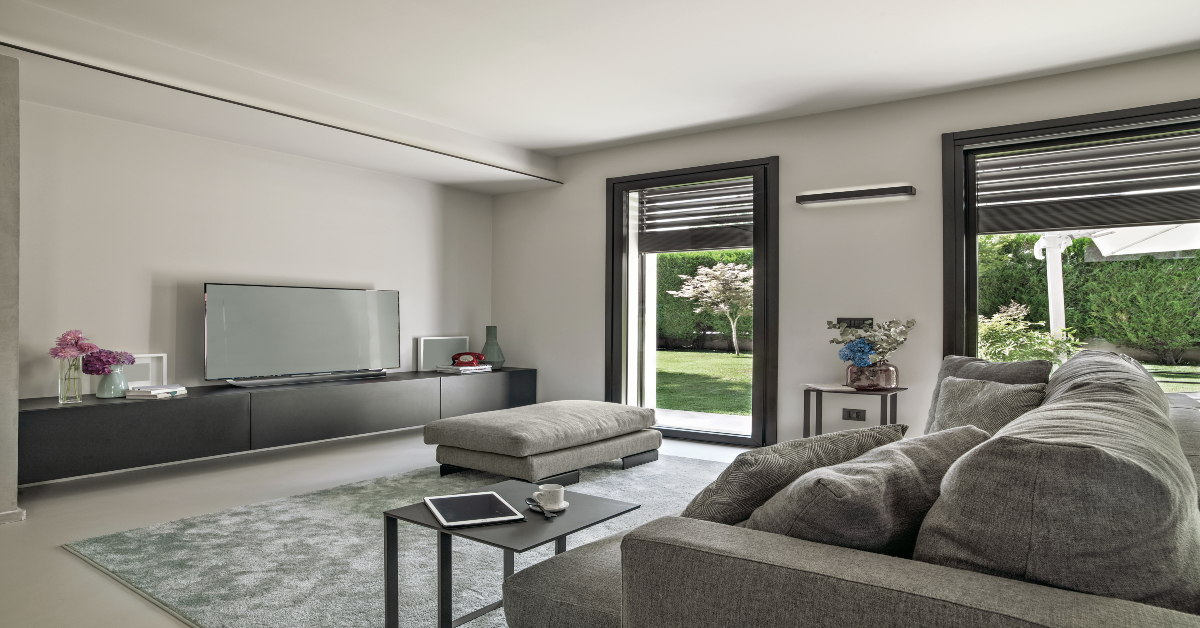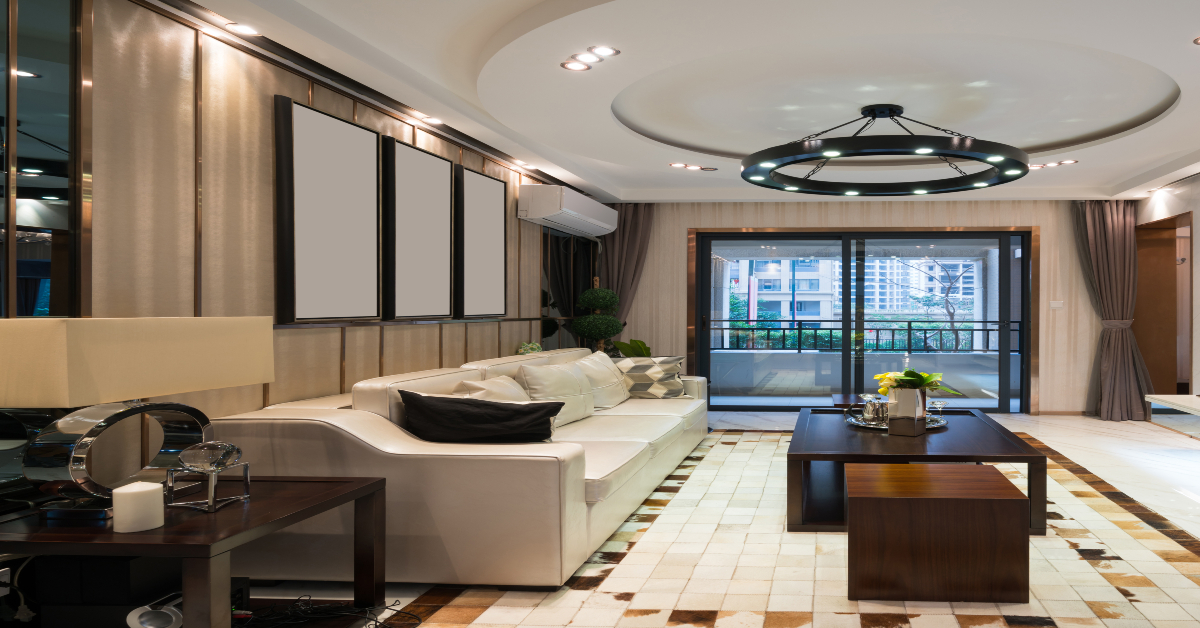Condos and apartments may look similar on the outside. Still, the experience of living in each can be completely different, especially in the UAE, where building management, freehold ownership, and community rules vary widely between developments.
Understanding these differences helps you select the ideal home for your budget, lifestyle, and long-term goals.
- Understanding the Basics
- Key Differences Between Condos Vs Apartments
- Living Experience: Condo vs Apartment
- Buying a Condo vs Renting an Apartment
- Financial Implications: Equity, Service Charges & Fees
- Condo vs Apartment Rental: What to Expect
- Choosing Between a Condo and an Apartment
- A Quick Comparison: Condo vs Apartment
- Key Takeaways
- FAQs

Understanding the basics
Before choosing between a condo and an apartment in the UAE, it’s essential to understand how each model works. While both are residential units within a building, their ownership, management, responsibilities, and financial commitments are different. These differences impact everything from monthly expenses to the level of control you have over your living space.
What Is a Condo?
In the UAE, a condo is essentially a freehold apartment owned by an individual. The owner can customise the interior and build equity over time. Shared facilities such as pools, gyms, and lobbies are managed by the building’s Owners’ Association (OA).
What Is an Apartment?
An apartment is a unit rented from a landlord or a management company within a building. Tenants enjoy standard layouts, unified rules, and consistent maintenance, but do not build ownership or equity.
Key Differences Between Condos Vs Apartments
Understanding these distinctions can help you determine which option aligns more closely with your long-term goals.
Ownership and Equity
- Condos: Owners build equity as property values appreciate.
- Apartments: Renters do not gain equity; payments are purely for occupancy.
Maintenance Responsibilities
- Condos: Owners are responsible for interior maintenance; the Owners’ Association manages common areas.
- Apartments: Building management handles all repairs, typically offering faster response times.
Leasing Process
- Condos: Lease terms vary from owner to owner.
- Apartments: Rental terms are standardised and registered through Ejari (Dubai) or Tawtheeq (Abu Dhabi).
Amenities
- Condos: often have premium amenities, depending on the building category.
- Apartments: typically provide essential shared facilities but usually adhere to standard design specifications.
Cost Differences
- Condos: Buyers pay mortgage instalments + service charges.
- Apartments: Renters pay a monthly rent plus a 5% housing fee in Dubai (added to the DEWA bill).
Living Experience: Condo vs Apartment
The day-to-day experience can vary widely. Condos typically offer a more personalised feel because they reflect the owner’s design choices and upgrades. Apartment living is generally more uniform, with standard layouts and finishes that are consistent across all units.
Condo communities may feel more residential, while apartments often attract short-term tenants who value convenience and flexibility. These lifestyle differences can strongly influence your comfort and satisfaction.
Who Manages the Property?
- Condos: Managed by the Owners’ Association (OA) and the individual landlord.
- Apartments: Managed by a single landlord or developer.
Landlord Relationship
- Condos: Tenants deal with an individual owner.
- Apartments: Tenants interact with leasing offices or building management.
Rules and Restrictions
- Condos: They follow OA rules, which may include regulations on balcony use, pet ownership, and noise control.
- Apartments: They have building-wide guidelines with simpler enforcement.

Buying a Condo vs Renting an Apartment
Choosing between buying a condo and renting an apartment involves striking a balance between commitment and flexibility. Condo buyers gain ownership, equity, and potential appreciation over time.
Apartment renters enjoy predictable monthly payments and fewer obligations, but do not build ownership wealth. The best option depends on your financial readiness, mobility, and long-term housing plans.
Pros of Buying a Condo
- Builds equity
- Can customise interiors
- Potential rental income
- Often located in freehold lifestyle communities
Cons
- Service charges
- Long-term financial commitment
- Market-dependent resale
Pros of Renting an Apartment
- Flexible lease terms
- Lower upfront cost
- No responsibility for repairs
- Predictable payments each year
Cons
- No equity
- Limited customisation
- Subject to rent increases (regulated by the RERA Rental Index in Dubai)
Rent increases follow UAE regulations, which you can verify using Property Finder’s RERA Rental Index guide, helping tenants check if increases are legal.
Financial Implications: Equity, Service Charges & Fees
The financial impact of choosing a condo versus an apartment goes beyond monthly payments. Condo buyers build equity over time as they pay down their mortgage; however, they must also budget for fees, services, and other charges. These ongoing costs support building maintenance, amenities, and long-term repairs.
Apartment renters, on the other hand, have a more predictable cost structure, consisting of a fixed monthly rent, utilities, and occasionally amenity fees. Since renters do not own the property, they aren’t responsible for repairs or long-term financial obligations.
Condos
Buyers must account for:
- Mortgage instalments
- Annual service charges
- Maintenance and repair of the unit interior
Apartments
Renters pay:
- Monthly rent
- 5% housing fee in Dubai
- Utility and internet bills
For accurate budgeting, compare options using:
- Mortgage Finder (for buyers)
- Upfront Costs Calculator (for renters)

Condo vs Apartment Rental: What to Expect
Renting a condo typically offers a more upscale living experience, as individual owners may invest in upgraded interiors, improved lighting, or designer finishes. Tenants may enjoy quieter communities or access to premium shared amenities.
Apartment buildings typically follow consistent layouts, adhere to predictable rules, and employ professional maintenance teams that respond promptly to repairs. The leasing process is also more uniform; contracts are standardised, coming from the same management company, which makes the paperwork faster and easier.
Condo Rentals
- Owner-upgraded interiors
- Higher-end fittings and appliances
- More personalised spaces
- OA rules may apply
Apartment Rentals
- Standard layouts and finishes
- Professional maintenance teams
- Faster repair response times
- Predictable leasing procedures (Ejari/Tawtheeq)
Service Charges and Additional Costs: Condo Vs Apartment
Condo owners pay service charges, which cover cleaning, landscaping, security, common-area maintenance, and building upkeep. These fees vary depending on amenities, building age, and community standards. In some cases, condo landlords may pass a portion of these charges on to tenants, depending on the terms of the rental agreement.
Apartment renters, on the other hand, typically pay only their monthly rent and standard utilities. Maintenance of common areas, as well as often repairs inside the unit, is handled by the landlord or management company, meaning fewer unexpected expenses for tenants.
Choosing between a condo and an apartment
If you want a sense of ownership, customisation, and higher-end amenities, a condo is the right match. If you prefer flexibility, lower responsibility, and straightforward leasing processes, an apartment may be a better fit for you.
Consider factors such as commuting needs, maintenance expectations, community culture, and your planned stay duration.
Who Should Buy a Condo?
- Long-term residents
- Investors
- Those wanting ownership + amenities
Who Should Rent an Apartment?
- Short-term residents
- People seeking lower commitment
- Those avoiding maintenance responsibility
A Quick Comparison: Condo vs Apartment
This comparison offers a concise overview of the key differences between condos and apartments in terms of ownership, maintenance, fees, leasing, and amenities.
| Feature | Condo | Apartment |
| Ownership | Individually owned | One landlord/company |
| Equity | Builds equity | No equity |
| Maintenance | Owner interior; OA common areas | Landlord/management |
| Fees | Service charges | Rent and housing fee |
| Leasing | Directly with the owner | Standardised via management |
| Flexibility | Less flexible | Highly flexible |
| Amenities | Often premium | Standard |
| Customisation | High | Low |
Key Takeaways
Condos and apartments differ primarily in ownership, maintenance responsibilities, amenities, and overall financial commitment. Condos are ideal for buyers who want to build equity, personalise their space, and benefit from community amenities.
At the same time, apartments remain the best choice for renters seeking flexibility, predictable costs, and minimal upkeep. To make an informed decision, explore neighbourhood comparisons through Property Finder’s Community Insights.
FAQs
Yes, terms depend on the individual owner.
Owners pay service charges; these may be included in rent if the unit is leased out.
Condos include service charges; apartments usually have lower monthly commitments.
No, they don’t. The UAE has no property tax. Owners only pay annual service charges set by RERA guidelines.
Yes, they do. In Dubai, renters pay a 5% housing fee, which is added to their DEWA bills. Abu Dhabi and Sharjah have similar municipality fees.
Yes. All rental contracts in Dubai, whether for a condo or an apartment, must be registered through Ejari.
Condo owners handle interior repairs; the OA handles common areas. Apartment landlords or management companies handle all maintenance.